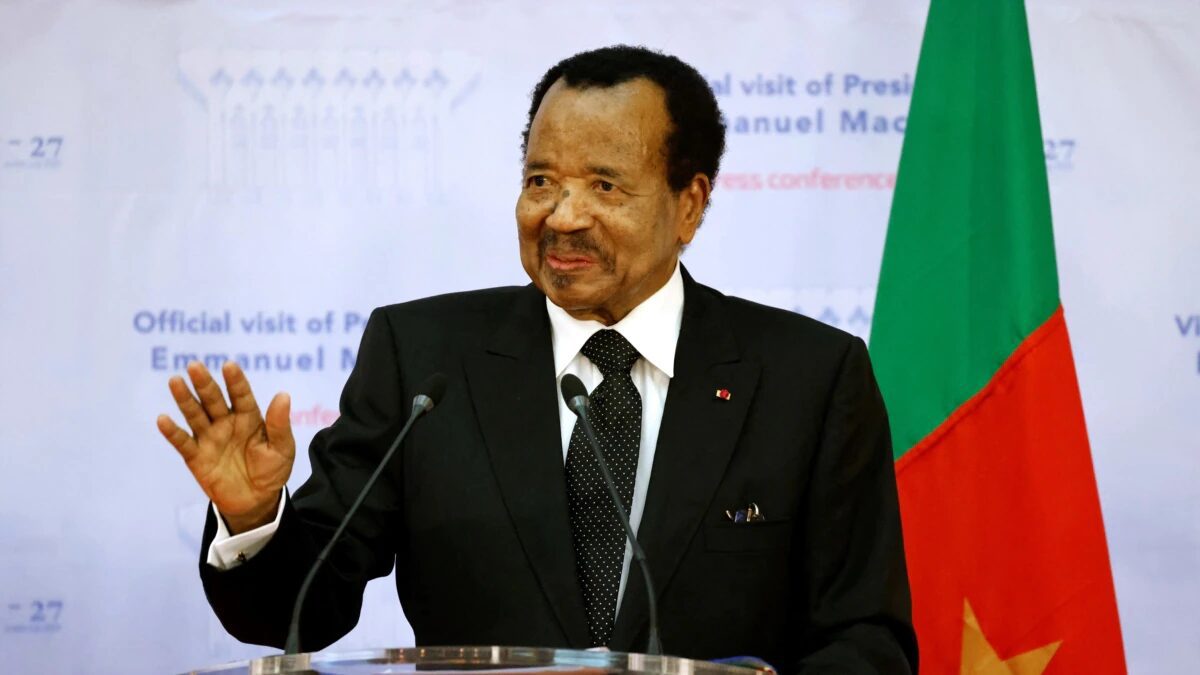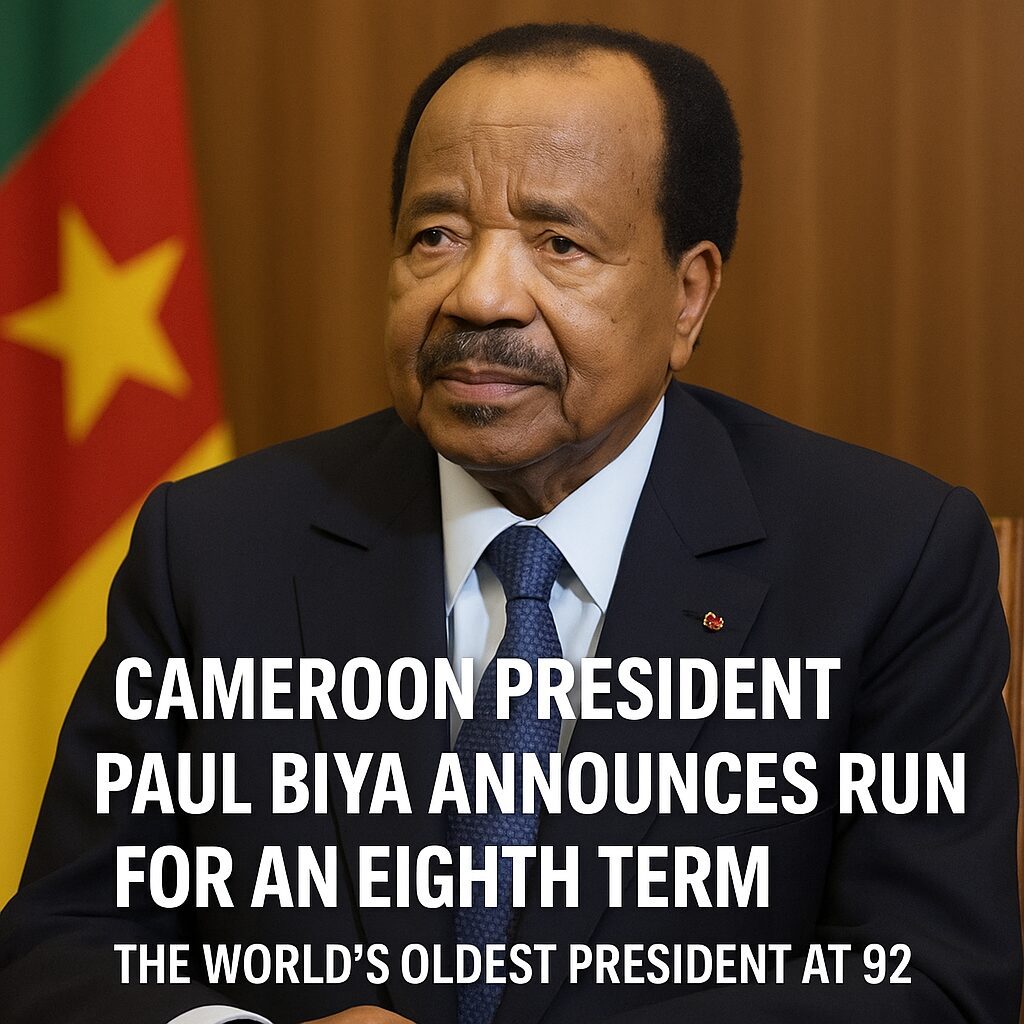Cameroon’s 92-Year-Old President Paul Biya Announces Bid for Eighth Term
YAOUNDÉ, Cameroon — Cameroon’s President Paul Biya, aged 92, and currently the world’s oldest serving head of state, has officially declared his intention to run for an eighth term in the country’s upcoming presidential elections, set for October 12, 2025.
Biya, who has ruled the Central African nation since 1982, made the announcement via his official social media channels on Saturday, July 13, stating his decision to continue “putting [his] experience at the service of Cameroon’s progress.” His candidacy, if successful, would see him surpass 45 years in office — one of the longest presidential tenures in modern global history.

Paul Biya, Africa’s second longest serving president after Teodoro Obiang of Equatorial Guinea, is frequently sick and abroad. Last year, talk spread that he had died, prompting the government to publicly deny the rumors. Cameroon’s second president since independence from France in 1960, Biya has been in power since 1982.
Promising that the best is yet to come in his post on social media, Biya reiterated his determination to rule, saying, “Rest assured that my determination to serve you is commensurate with the serious challenges facing us.”
A Controversial Legacy
While Biya’s supporters hail him as a symbol of stability in a country often beset by regional crises, critics argue that his extended rule has stifled political pluralism and weakened democratic institutions. Over the decades, his government has been accused of undermining term limits, curbing press freedom, and suppressing opposition voices.
In 2008, Cameroon’s National Assembly — dominated by Biya’s ruling Cameroon People’s Democratic Movement (CPDM) — voted to remove presidential term limits, effectively allowing him to run indefinitely.

Aging in Office
Concerns over Biya’s health have become increasingly common, especially following a 42-day absence from public view last year. Many political observers have speculated that a quiet power struggle is already unfolding within ruling party circles as the country considers life beyond his presidency.
Despite these concerns, Biya remains a dominant force in Cameroonian politics. His official portraits still hang in nearly every government building, and his inner circle retains a tight grip on administrative and security structures.
Many on the internet did not take kindly to 92-year-old Paul Biya, the world’s oldest sitting head of state, announced he’s running for an eighth term.
The Memes Wrote Themselves
From TikTok to X, users wasted no time roasting the idea of a nonagenarian campaigning for another seven years in power:
“Paul Biya is 92, and he’s still running for president? Sir, you should be running a bath.”
“Imagine needing a wheelchair ramp to get to the podium, but you still want to run a whole country.”
“He’s been president longer than some countries have existed!”
“The only term he should be running for is ‘eternal rest.’”
One viral post simply showed a skeleton in a presidential chair with the caption: “Cameroon’s 2040 president if Biya wins again.”
Old Age or Power Addiction?
Many users poked fun at the fact that Biya would be almost 100 years old by the time his next term ends. Others questioned whether he even controls the government anymore or if he’s just a figurehead for the ruling party.
A Cameroonian activist tweeted:
“This isn’t elder leadership. This is a hostage situation.”
But Behind the Jokes…
The online laughter is also laced with real frustration. Biya’s decades-long grip on power has come under fire for:
- Weakening democratic institutions
- Crushing dissent and media freedom
- Failing to solve regional conflicts like the Anglophone crisis
Even some of his former allies are breaking ranks to run against him in 2025.
What’s at Stake
This election comes at a pivotal moment for Cameroon, which continues to grapple with:
- The Anglophone crisis in the southwest, where separatists seek independence from the French-speaking majority
- Security threats from Boko Haram in the north
- Youth unemployment, corruption, and growing calls for generational leadership change
Several opposition leaders, including Maurice Kamto and Akere Muna, have signaled intentions to challenge Biya, though few believe the electoral playing field will be level.
Global Spotlight
Biya’s announcement has drawn international attention not just for its historic implications, but for what it represents in the broader African context — a continued trend of leaders clinging to power well into old age, often at the cost of democratic renewal.
As October draws near, the world will be watching to see whether this election signals continuity, crisis, or the beginning of a long-delayed transition.
